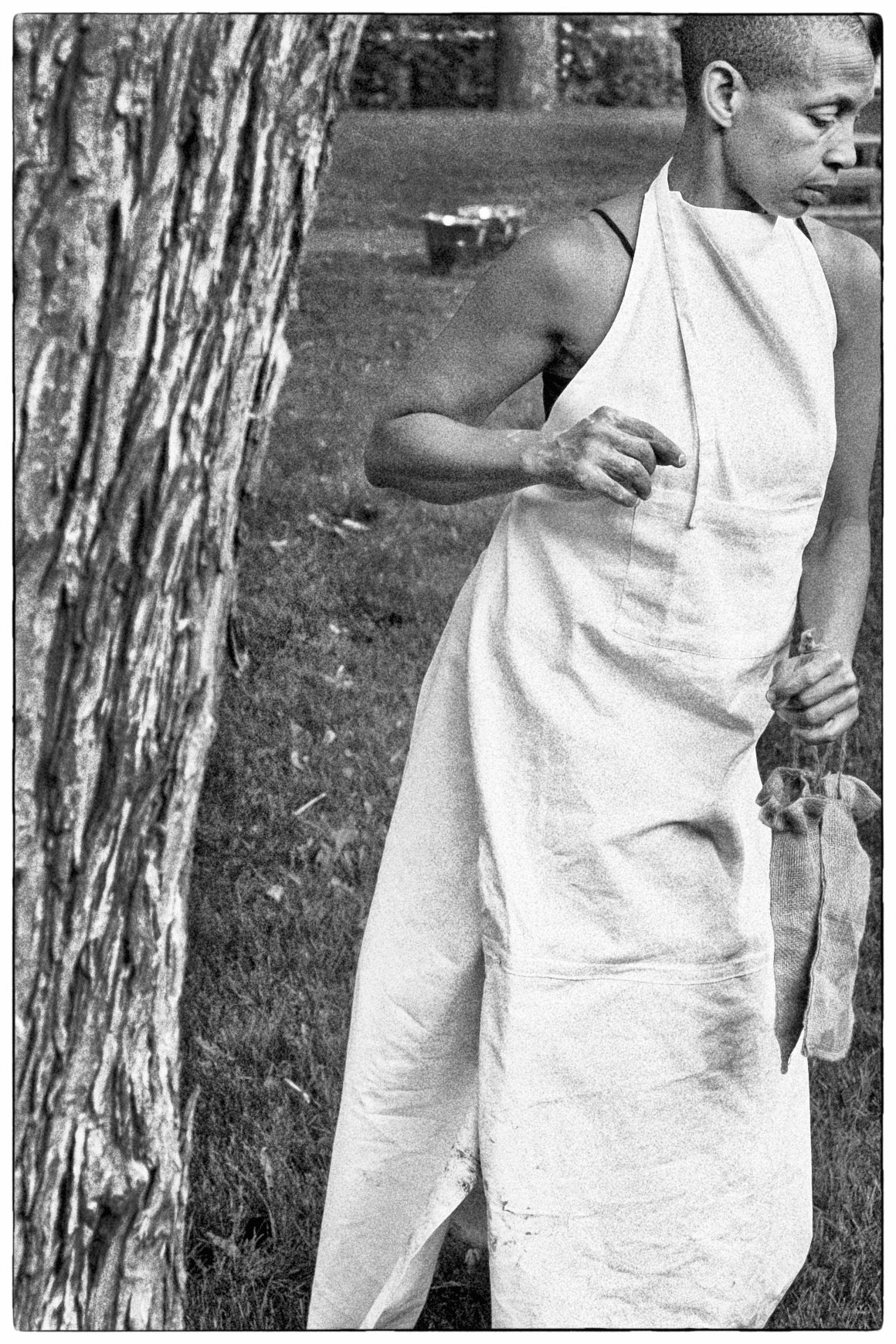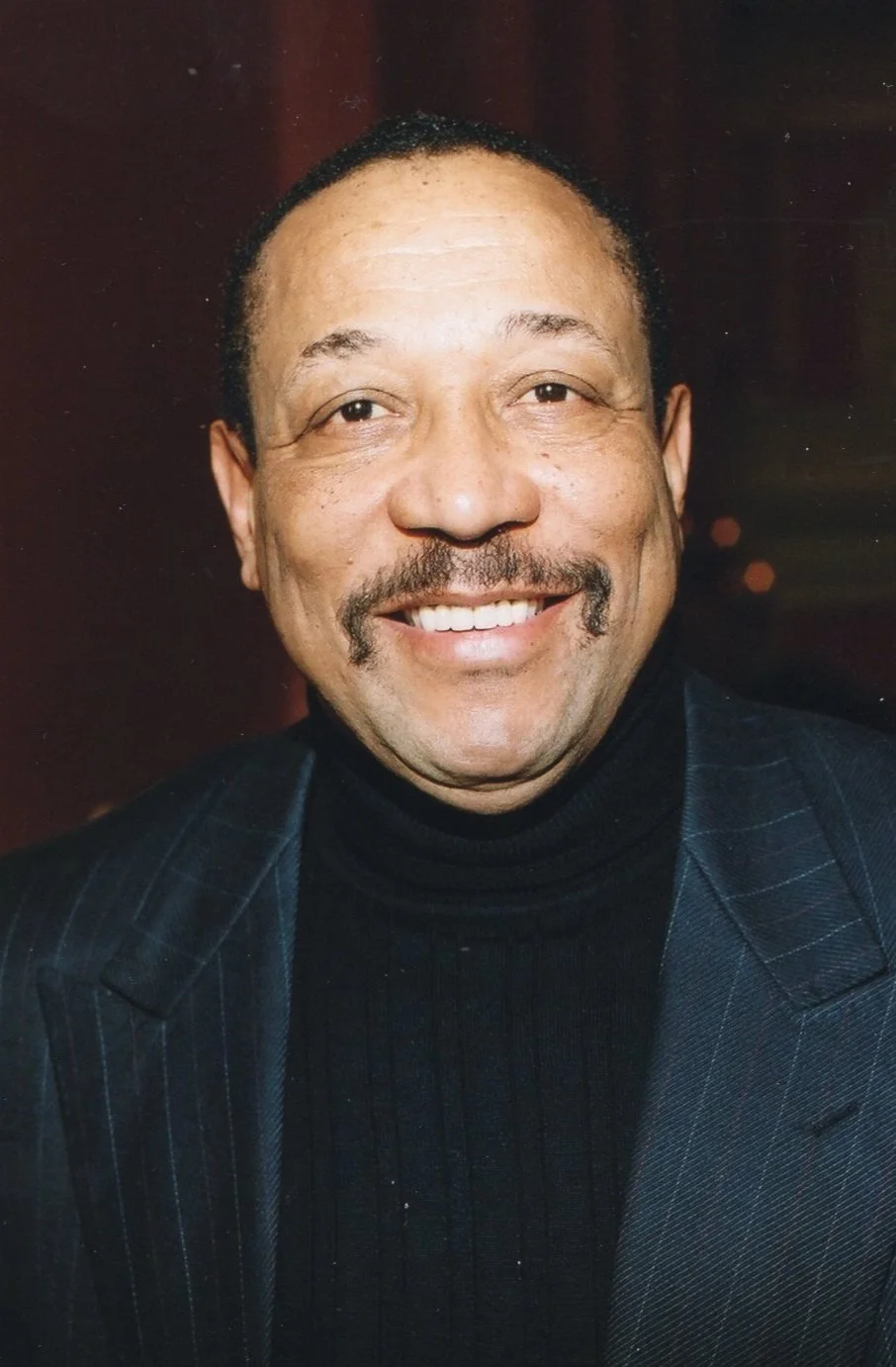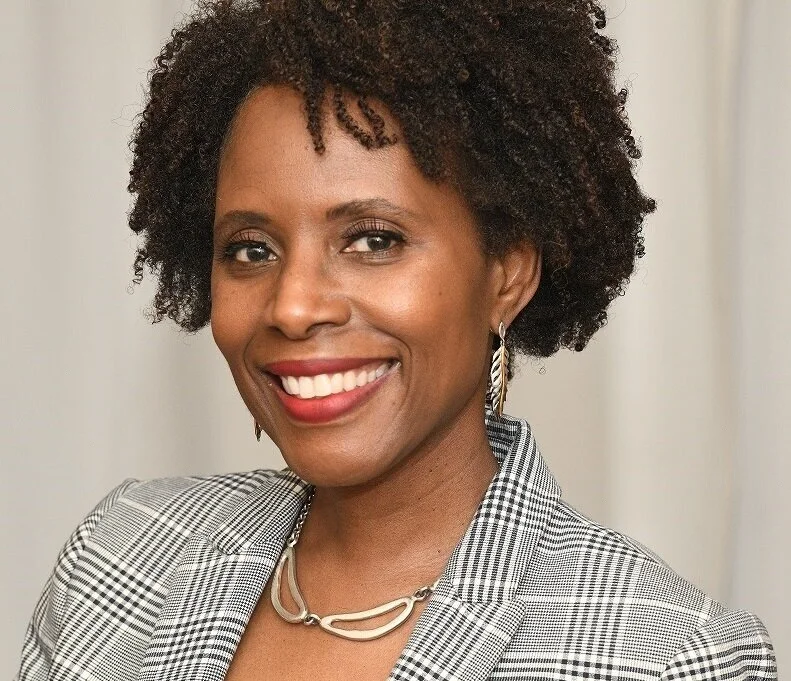Multidisciplinary artist Angelique Willkie leading Concordia University's efforts to address anti-Black racism
January 6, 2022
In prep school in Jamaica, Angelique Willkie’s parents would show up to collect their daughter after classes only to find her often at a nearby building perched on top of a box peering through a window at a ballet class.
In the five years before leaving Jamaica in 1977 with her family at age 15, she attended the Jamaica School of Dance that is one of four institutions that make up the Edna Manley College of the Visual & Performing Arts.
“I have always enjoyed dance,” she said. “I love the feeling of moving and everything that’s generated through movement. I also enjoy the music aspect of it and the coming together that happens as you don’t dance alone. In addition, I am fascinated by how the body talks.”
When the family migrated to Ottawa, Willkie quit dancing.
After a year in Canada’s capital, she went to Queen’s University to pursue undergraduate studies.
The stay lasted two years.
“I ran away fast because, at the time, I found Queen’s too small, too Conservative, too White and too privileged,” Willkie said. “There was a psychiatric hospital and a maximum security prison. I couldn’t cope with it.”
Transferring to McGill University, she completed her undergraduate degree in Spanish and Latin American Studies and signed up for dance classes.
“There was an indoor track at Queen’s that I used to run on to stay fit,” she said. “When I moved to McGill, there was no indoor track and I needed to do something to stay in shape during winter. There were dance classes at the gym there and I signed up for two dance classes a week.”
After finishing her Master’s in Economics, Willkie decided to take a year off before starting a PhD.
“Just 23 years old and after almost seven years in school, I decided I was just going to do something for myself before returning to university,” she said. “I was going to dance for a year full-time and then come back and finish school.”
Sometimes, the best-laid plans go awry.
Willkie spent four years with The School of Toronto Dance Theatre that is a national leader in performing arts training before taking a break.
“I love dancing, but the way things were taught in that school made me feel uncomfortable,” she said.
The multidisciplinary artist managed The Real Jerk Restaurant for 18 months.
“While closing up one weekend evening, I counted the money that was earned over the course of that week and remember thinking they earned my salary in one week,” Willkie said. “It occurred to me that if I could spend time counting someone else’s money, I should either open my own restaurant, go back to Economics or continue with dancing. While I enjoyed my time at the restaurant, that was not what I was going to do long-term.”
She moved back to Quebec and then embarked on her first European trip while waiting to audition with Montreal dance companies.
The original plan was to be in Europe for about two months doing some workshops.
Offered a job, she spent 25 years with a base in Belgium.
Willkie performed with dance companies and independent projects, including Alain Plate/Les Ballets C. de la B., Jan Lauwers/Needcompany, SidiLarbiCherkaoui, Helena Waldmann, and as a singer with the rock band dEUS and Zap Mama whose ensemble of polyphonic singers inspire influences in American hip hop nu-soul, jazz and elements of pop.
She also accompanied Belgian jazz singer/songwriter David Linx and contemporary composers Walter Hus, Kaat De Windt and Fabrizio Cassol.
As a teacher on the European professional circuit, Willkie worked with companies, schools and festivals in Amsterdam, Salzburg and Brussels. She spent eight years at Ecole Superieure des Arts in Brussels as a teacher and dramaturgical adviser and her dramaturgical work has included dance, music and circus theatre projects with many skilled artists, including Belgian theatre director/choreographer Isabelle Soupart and French trapezist Melissa VonVepy.
How do Willkie characterize the European experience?
“When somebody asked me where I am from, I said I was born in Jamaica, I live in Montreal and I am from Brussels,” she said. “I lived there longer than I have did anywhere else in my life. Brussels is an extremely hybrid city. There is something about living in that environment where there is such a vast array of humanity. I learned tolerance and the complexities and advantages of humanity and different. I learnt that the answer is not for us all to assimilate that we are no longer visible because that’s not the future. Neither is it a place of screaming the difference so loudly that we can’t actually function together. Belgium is a place of compromise and living there has served me well.
“In the position I am in now, my capacity to adapt, improvise, read body languages and deal with people and hybridity and to understand disadvantages and the need for the differences to be acknowledged are things I learnt from living in Europe which is the pinnacle of contemporary dance. That is where I grew up and became my own person. The fluidity with which I was able to navigate spaces that I would not have benefitted from had I stayed in North American and certainly not in Jamaica would not have been possible.”
Late American-born French entertainer Josephine Baker, who refused to perform for segregated audiences in the United States and was the first Black woman to star in a major motion picture, hugely inspired Willkie whose research and work interests explore circus – mainly European – as a contemporary art form, the use of the voice as a creative tool and performance instrument in contemporary dance and issues of identity, aging and cultural (mis-) appropriation inspired specifically by Baker’s life.
“She was significant for me,” she said. “I was fascinated by the fact that she was the first Black star. I lived in France for a couple of years and she was an enormously big deal. I often find myself asking, ‘how did this little Black woman who came to France in the 1920s end up as a national hero’?” She made herself a career despite the racist colonial tropes that were prevalent in that time. She took advantage of what her body communicated to this colonial audience and used it. My body is also inscribed with social and political significance. Is that seen, is that not seen, is it used, is it not used and am I aware of it or not aware of it? Josephine Baker’s story allowed me to question myself.”
Last November, Baker – who arrived in Paris in 1925 at age 19 and died in 1975 a few days after collapsing on stage -- became the first Black woman, the first performing artist and the first American to be accorded France’s highest honour by being inducted into the French pantheon that is the country’s mausoleum of heroes.
Angelique Willkie (Photo by Eric Lauwers)
Willkie returned to Canada eight years ago and joined Concordia’s Faculty of Fine Arts as an Associate Professor of Contemporary Dance.
“I don’t come from academia in my professional work,” she pointed out. “I come from 30 years of practice. They were looking for a full-time Professor and I thought it would be an amazing opportunity towards the end of my career. I believe that transmission is an important part of success. I am committed to teaching and this was an opportunity to teach in a different context. I was also very interested in how artists reflect on what they do.”
Since the start of last July, Willkie has been the Special Advisor to Concordia’s Provost on Black Integration & Knowledges. The new role aligns with the renewed global conversation on anti-Black racism and complements the university’s ongoing efforts to address anti-Black racism.
A core responsibility of the position is to continue chairing the President’s Task Force on Anti-Black Racism and, ultimately, to present Concordia’s President with a comprehensive set of recommendations and an action plan to combat anti-Black racism at the university.
“Angelique will take the bold steps necessary to see Black Concordians fully included in all areas of university life where often times they have been either assigned peripheral roles or excluded,” said Provost & Vice President, Academic Anne Whitelaw. “Seeing greater participation of Black students, faculty and staff on campus is long overdue. This will not only provide the opportunities necessary for them to actualize their potential, but it will also serve to advance our university as a whole. Angelique has the full support of university leadership.”
In the summer of 2020, Concordia launched its President’s Task Force on Anti-Black Racism.
Led by Willkie, the 15-person committee, a steering committee and six subcommittees oversee and co-ordinate the work needed to generate recommendations that are anchored in the experiences of Black faculty, staff and students that will address systemic practices.
“It’s clear that among the concerns, governance is one of them,” she said. “It made sense to have someone in position who would not only shepherd the recommendations, but be on hand to initiate the implementation. The need for the position was clear. I am very committed to the work that has been done and Concordia’s commitment to its own community and the fully embedded inclusion.”
Decolonizing Concordia, agrees Willkie, starts with its past.
In 1969, the largest student revolt at a Canadian university was staged at Concordia (then Sir George Williams).
Suspecting unfair grading by their Biology professor, six Caribbean students lodged a protest in 1968 with the university that agreed to establish a committee to investigate the allegations. Eight months after the matter was not resolved, nearly 400 students occupied the computer lab on the university’s ninth floor.
Almost $2 million in computer equipment was damaged during the 14-day protest.
“There’s no denial of the tragedy that that was and it remains a tragedy,” Willkie said. “The reality is that Concordia has had a long history of Black students’ presence. Even if that incident tarnished relationships in many different ways, it is clear from the administration’s point of view as well as the Task Force members that what we need to look at is the university’s history in a larger sense. If we are going to heal anything, it is by looking at previous and current relationships. The role of the university in community engagement is one of the things we are thinking about in the functioning of the Task Force.”
Being the mother of two adopted Haitian children was also another compelling reason for Willkie to leave Europe.
They are aged 17 and 19.
“I had the luxury of growing up in Jamaica where almost everyone looked like me,” she said. “That is a sense of belonging that I realized my children would not have as they spent time in Belgium and now they are in Montreal where the majority of people don’t look like them. One of the things that have anchored me through all of the madness I have lived is a sense of self. I also wanted them to know this side of the Atlantic because this is where they and I come from. Coming to Montreal has allowed them to have access to Haitian culture. So, being Haitian is no longer an oddity.”
Willkie attended St. Hugh’s High School in Jamaica that is the alma mater of Canadian Senator Rosemary Moodie, Canadian poet Lorna Goodison who was Jamaica’s Poet Laureate from 2017 to 2020 and tourism consultant Carrole Guntley who, in 2013, was the recipient of Ryerson University’s first International Alumni Award.
She said high school shaped her in many ways.
“St. Hugh’s was a good bridge for me between the life I lived as the daughter of a Supreme Court judge and the way of that same judge’s own formative years which was too poor to finish high school,” she said. “I was encouraged to become myself and not my mother who attended St. Hugh’s. It also gave me a sense of possibility.”
Willkie is the daughter of former Jamaica Appeal Court Judge Wylie Willkie who served with the Royal Air Force during World War II. Migrating to Canada in the early 1980s, he worked with the Department of Legal Research in New Brunswick before retiring in 1985 and relocating to Winnipeg. At age 58, he returned to the classroom and graduated with a Master of Laws degree at the University of Manitoba.
The family patriarch passed away in 2011 at age 84 and his wife, Hila, died three years ago.
While also busy helping to establish Concordia as a leader in academic and research innovation in Black and African diaspora studies in Quebec and Canada, Willkie is pursuing a PhD. in Dramaturgy at the Universite du Quebec a Montreal.
“I am looking at the relationship between Blackness and how Blackness is manifested in my own practice as a performer and dramaturge,” said Willkie who hopes to complete the thesis by the end of December 2022.







